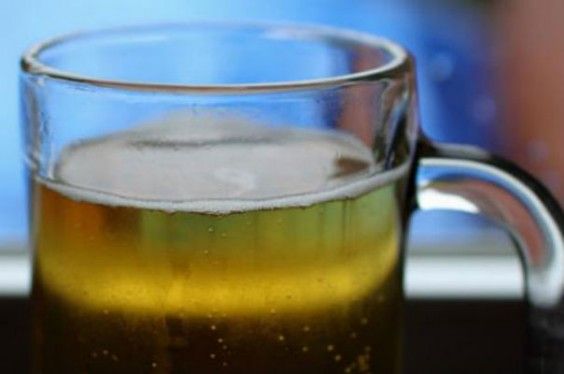Greatist News examines and explains the trends and studies making headlines in fitness, health, and happiness. Check out all the news here.
Do you remember your first taste of beer? Maybe you were sneaking a sip in your parents’ basement, or attending your first college frat party. For me it was in Ireland on a family vacation. My dad ordered me a Guinness — dark, dry, and with a thick head of frothy foam. I thought it tasted awful. Fast-forward a decade, and I’d gladly enjoy the stout by choice — and maybe even more than one: A new study suggests the taste of beer (sans the actual alcoholic effects) may prompt us to drink more.
The Study
Published in the journal of Neuropsychopharmacology, the study — which the researchers consider one of the first to test whether flavor affects behavior — suggests beer’s flavor (not just it’s alcohol content) triggers the reward center in the brain. The research team asked 49 men to try two beverages: Gatorade and their preferred beer. The subjects (who ranged from social to heavy drinkers, had varied family histories of alcoholism, and reported a history of little to no drug or tobacco use) indicated before the study that they preferred drinking beer (rather than mixed drinks, wine, etc.). During the 15-minute study, they each drank just 15 milliliters— the equivalent of one tablespoon — of water, their preferred beer, and Gatorade. The liquids were sprayed into the participants’ mouths in three five-minute blocks. The goal: Taste the drinks without ever nearing a buzzed state.
Using positron emission tomography (PET), an imaging test that helps reveal how tissues and organs function, the researchers scanned the men’s noggins for signs of dopamine release. Dopamine, a neurotransmitter that helps control the brain’s reward and pleasure centers, elevates after the consumption of alcohol and other addictive substances. After sipping the tablespoon of beer, the researchers found that dopamine levels in the subjects’ brains rose much higher than after consuming the sports drink. Even stranger — the levels were even higher for those who had parents or siblings with alcoholism.
Beyond the brain scans, participants reported an increased craving for beer after drinking the bubbly stuff. Yet after drinking the Gatorade, they had less of a desire to drink more of the sports drink (even though many participants enjoyed the taste over beer).
And you may be wondering “where the ladies at?” The researchers turned to only men after encountering difficulty finding women who preferred beer to other alcoholic drinks. (The ladies of Greatist would have gladly participated! But could we have more than a tablespoon, please?)
Is It Legit?
It’s too soon to be certain. Considering this study is among the first to examine the connection between flavor and behavior, and because it uses s a very small sample size, the findings can’t be set in stone.
However, this isn’t the first study to link sensory cues and brain response. Previous research suggests other sensory cues, such as sight and smell, can increase the urge to drink more
Do you like the taste of beer? Does just a sip make you want to drink more? Let us know in the comment section below or tweet the author @nicmdermott.

